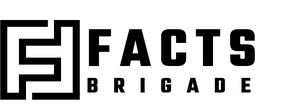40 Fun Facts About George Washington
Not a College Man: George Washington was the only Founding Father without a college education. He left school at 15 to manage the family estate. However, he was a self-taught learner and well-versed in many subjects.
Early Military Man: Washington’s first career was as a surveyor. He also served in the militia at a young age, gaining valuable military experience during the French and Indian War.
Father of His Country, But Not a Bio Dad: Washington and his wife Martha Dandridge Custis did not have any biological children together. However, they raised Martha’s two children from her previous marriage.
Smallpox Survivor: Washington contracted smallpox while visiting Barbados. He survived the illness but may have had lasting facial scars.
War Starter (Accidentally): Washington unintentionally fired the first shot of the French and Indian War, a conflict that eventually sparked the American Revolution.
Elected Unanimously (Twice): Washington was unanimously elected President by the Electoral College for both his first and second terms, a feat never repeated since.
Horse Whisperer? Washington was known for his love of horses and owned many throughout his life. He even bred his own prized stock.
Religious Man: Washington was a religious man, but his beliefs were private. He attended various churches throughout his life.
Architectural Enthusiast: Washington played a role in designing the expansions of Mount Vernon, his plantation home, showcasing his architectural interests.
Wooden Teeth? Not Exactly: Contrary to popular belief, Washington’s false teeth were likely made of ivory, hippopotamus teeth, or even a combination of materials, not wood.
Volunteer President: Washington never actually campaigned for President. He was drafted by popular demand and served out of a sense of duty.
Salary Refusal: Washington refused to accept a salary as President, believing it shouldn’t be excessive. He eventually accepted symbolic compensation to avoid setting a precedent for future presidents.
No King for America: Washington firmly rejected suggestions to become king after the Revolution. He believed in a democratic republic.
Whiskey Rebellion Woes: Washington faced the Whiskey Rebellion, a tax protest by farmers in western Pennsylvania. He personally led troops to quell the uprising.
Farewell Address: Washington’s Farewell Address is a cherished document warning against political parties, foreign entanglements, and excessive debt.
Inauguration on the Move: Washington wasn’t inaugurated in the White House. The building was still under construction during his terms. His inaugurations took place in New York and Philadelphia.
Mule Power: Washington is credited with being the first mule breeder in America. He recognized the mule’s value for farm work.
A Slaveholder: Washington inherited slaves and owned them throughout his life. He wrestled with the morality of slavery but never fully freed them during his lifetime.
French Hero (Sort Of): Washington was made an honorary citizen of France in recognition of his role in the American Revolution.
Weak Ties to Political Parties: While Washington leaned Federalist, he avoided strong affiliation with political parties, believing they could be divisive.
Lover of Literature: Washington was a well-read man with a personal library containing books on history, agriculture, and military strategy.
Strict but Fair Leader: Washington was a demanding leader but also known for his fairness and respect for his troops.
Agricultural Innovator: Washington experimented with new farming techniques and crops at Mount Vernon, promoting agricultural progress.
Champion of Infrastructure: Washington understood the importance of infrastructure and advocated for the development of canals and roads to connect different parts of the young nation.
A Strong Believer in the Constitution: Washington firmly believed in the newly ratified Constitution and worked to ensure its implementation.
Presidential Precedent Setter: Many of Washington’s actions as President set precedents for future administrations, shaping the development of the American presidency.
Financial Struggles (Sometimes): Despite his reputation as a wealthy landowner, Washington faced financial difficulties at times due to various factors, including wartime expenses.
A Reluctant Politician: Washington entered politics out of a sense of duty rather than personal ambition. He preferred the life of a planter at Mount Vernon.
A Symbol of Unity: Washington’s leadership and image played a crucial role in uniting the
A Symbol of Unity (continued): …uniting the disparate colonies into a new nation.
A Man of Strong Character: Washington was known for his honesty, integrity, and self-discipline, qualities admired by his contemporaries.
A Reluctant Duelist: Washington participated in several duels throughout his life, but he never sought them out and preferred to avoid conflict.
Freemasonry: Washington was a Freemason, a fraternal organization with a rich history. His involvement in Freemasonry continues to spark curiosity and speculation.
A Legacy in Stone: The Washington Monument, a towering obelisk in Washington D.C., stands as a lasting tribute to his legacy.
Currency Canvas: Washington’s image graces the one-dollar bill, a constant reminder of his role in American history.
Presidential Nicknames: Washington has been referred to by various nicknames throughout history, including “Father of His Country” and “The Indispensable Man.”
A Complex Legacy: Washington’s legacy is complex, with his role as a slaveholder a point of ongoing discussion and debate.
A Man of Contradictions: Washington was a man of contradictions, a slave owner who fought for liberty, a reluctant politician who became a revered leader.
A Stepping Stone for Democracy: Washington’s presidency helped lay the foundation for a strong and stable democracy in the United States.
An Enduring Icon: Despite the complexities of his life and times, George Washington remains an enduring icon in American history, a symbol of leadership, perseverance, and the fight for liberty.
